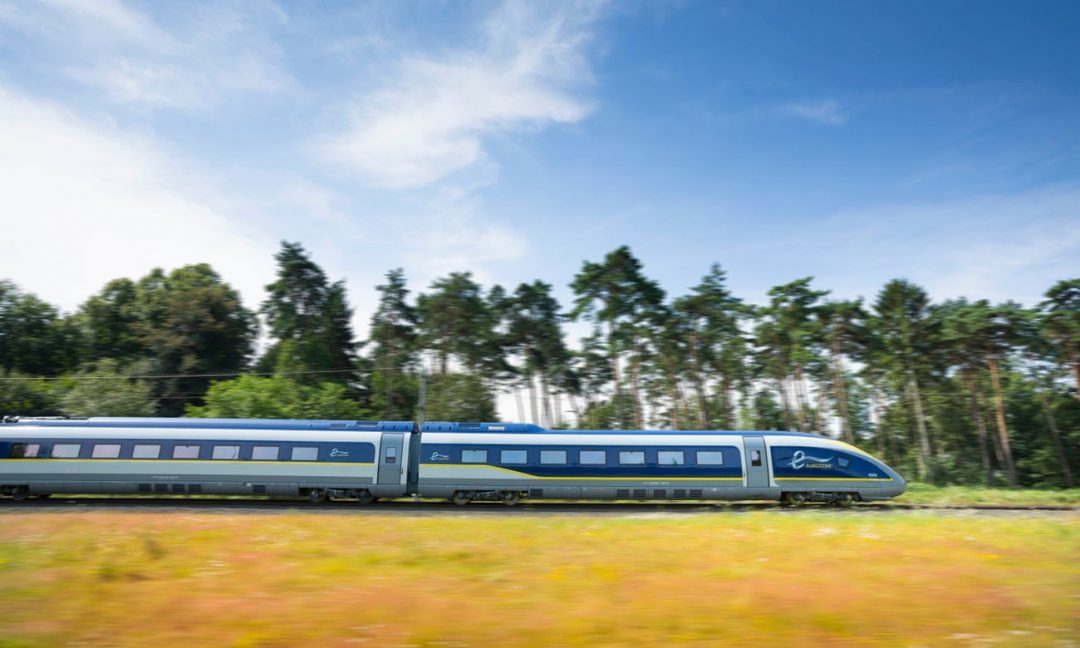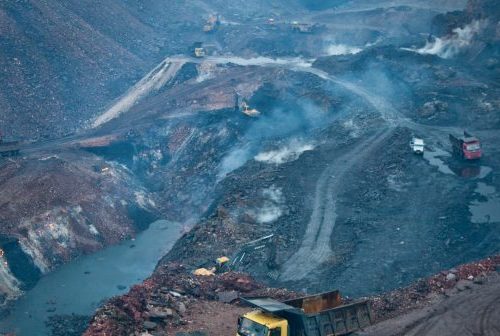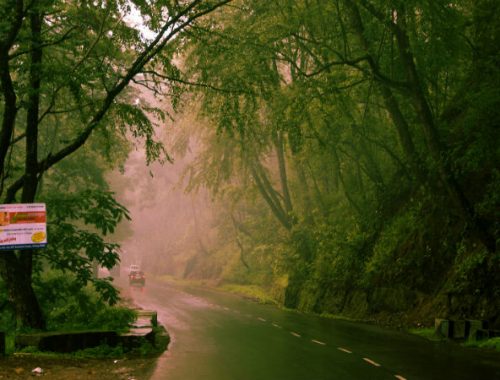On the morning of 14 November 1994, a train glided into the Gare du Nord in Paris. It had left London Waterloo three hours earlier with around 700 passengers, then meandered – frustratingly slowly in those days – through Kent. Near Folkestone it dived underground, into a tunnel bored through the chalk under the seabed, before emerging 20 minutes later near Calais, where it could at last accelerate to 186mph and finally arrive at the French capital three minutes ahead of schedule. Or rather late, perhaps, depending on how you look at it.
After all, it was nearly two centuries earlier, in 1802, that a French mining engineer named Albert Mathieu-Favier first proposed the idea of a tunnel under the Channel. It involved horse-drawn carriages and oil lamps and was quickly abandoned. Numerous other ideas and schemes followed; surveys were carried out and tunnels were even started. Digging began in 1881, but the project was ditched when British politicians and the press stirred up fears of an invasion.
Just over a century later, in 1986, an agreement between France and Britain to build the tunnel was signed in the presence of François Mitterrand and Margaret Thatcher. Digging began from both sides in 1988; on 1 December 1990, two miners, Englishman Graham Fagg and Frenchman Philippe Cozette, broke through the service tunnel and shook hands. A further four years later, high-speed trains were running through the tunnel.
Since then over 200 million passengers have travelled on the Eurostar – including the Queen, presidents, prime ministers, Beatles and Rolling Stones, ambassadors, Wags, fans, and a lot of ordinary people. I spoke to some of those passengers, and the people who helped them travel.
I drove the first train to Paris
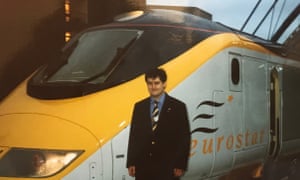
My co-driver Lionel Stevenson and I were told the Friday before that we were rostered on the first train to Paris. I thought: “Blimey, that’s a lot of pressure,” but we were well trained and ready to go. The day went very fast. We left Waterloo within a minute of the right time, had a pretty clear run and in northern France we accelerated to 300kmh. We were aware that it was a historic moment – that if anything went wrong, that’s what would be reported.
Before that I was an InterCity driver on British Rail. The Eurostar train is a lot faster; we loved that, but it was something we had to get used to. Then there were the different signalling systems; French and Belgian rules and regulations. We were given 600 hours of French language training, including two residential stays in France.
It always gives you a buzz, going into the tunnel, especially if you get slowed down on the approach and then accelerate into the tunnel. We don’t get much overtaking us. The nearest I’ve come to it was many years ago when there was a 170kph speed restriction in France. There was a BMW on the left-hand side, just in front of the train. As we came off the speed restriction I looked over and he was accelerating at the same rate, up to about 250-260kph, before I gently eased past him.
We had a couple of stowaways once. They were on the outside of the train and were spotted as we left Lille for London. There are a number of places – without giving too much away – where you can wedge yourself in. As we approached Calais I was told we would stop and the French police took them away.
And I have had a couple of fatalities. It’s not a pleasant side of the job. It takes a while to get your head around. The company provides counsellors. There’s nothing we can do about it – that’s the starting place for dealing with it, but it’s not pleasant, especially when you find out a bit about the people involved.
Bob Priston, train driver.
I met my husband on the Eurostar
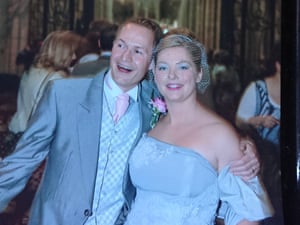
Advertisement
In 2002 I was studying English and went to live in London, but eventually ran out of money and had to go home to Paris. I had come to the UK with one suitcase, but when it was time to go back I had three, so I left some behind. I was on my final trip from Paris to London to pick up the last suitcase when I met my husband. He was on a business trip and wasn’t even supposed to be on that train – he had just missed the previous one. I did notice him in the queue, but he wasn’t my type, if I’m honest – although there was something nice about him. Then, when I came to sit next to him on the train, I thought: “Oh, it’s that guy.”
We both had Discmans and that was probably the start of the conversation: “Ooh, what are you listening to?” I was probably listening to PJ Harvey and Radiohead – he was more dance. He’s a DJ at heart, even if he has to work in the City.
He offered me a beer. I think I spilled a bit on him. I offered him a Bonne Maman chocolate tartlet – it’s really cliched! We were talking in English for the first hour and a half, then suddenly he spoke French. He had kept that one quiet. I was quite impressed. It was a fun three hours. I didn’t think “I’m falling in love”, but we exchanged numbers.
I told my friends how I had met this guy, he was nice, carried my suitcase – the embodiment of the proper Englishman. They said, you’ve got to call him. I went back to Paris and we arranged to meet, because he was coming to Paris again. We went to one of those bars opposite Gare du Nord. I went to the UK maybe a couple of weeks later, to see him. We got on so well I decided to move in. I had quite a good job in Paris, but I thought: “I’m still young, I’m going to take a chance.”
Jenny Wheeler lives with Chris and their two children on the Essex/Suffolk border.
I helped build the tunnel
I’m actually sitting on the Eurostar right now, leaving in seven minutes. I was public affairs manager for Eurotunnel, involved in the tunnel and the start of services. I’ve been following it ever since. In 1980 or 81 Margaret Thatcher indicated that if a fixed link across the Channel could be built and financed without public money, then we could do it. We had people from Dover Harbour Board saying the tunnel was going to be the longest crematorium in the world – we had to struggle against that.
The decision to make it a rail tunnel was very significant. Some of the alpine road tunnels have had lots of problems, as well as the issues of exhaust emissions. But Mrs Thatcher didn’t like trains, she liked cars. When she asked our chairman how you get the cars across, he said: “Oh, you put them on shuttles,” and she never asked what a shuttle was. Of course, it was a train.Advertisement
I always thought it was an important way of linking us to the continent – not just business, but pleasure and culture. The train has helped integrate communities in a way that didn’t happen before. That’s what’s so sad about Brexit: they are doing their best to wreck it.
Anthony Fitzhardinge Gueterbock, Lord Berkeley.
The Eurostar is at the centre of my marriage
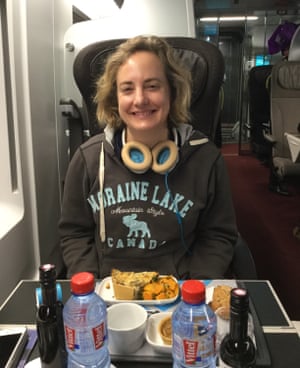
Antoine was a software engineer who came to the UK when they were building the tunnel under London in about 1998. We met by chance in a London bar – I was a sociology student at Brunel University on a girls’ night out. We married in 2010. I live in London and he lives in Paris. We travel by Eurostar backwards and forwards to see each other at weekends. He comes twice a month, I go one weekend over there, or I stay longer because I have more flexibility. I do an art course and even did a big model of the Eurostar, with pictures of myself and Antoine inside.
Bryony Hoskins is a professor of comparative social science at the University of Roehampton.
I was a passenger on the first train to Paris
The most disappointing thing was that you never actually saw the sea: it’s because of the way the tunnel had to start in front of a hill on the British side and takes you quite a way beyond Calais. It’s a brilliant piece of railway engineering: I’ve travelled in the cab, an amazing experience. But the other great disappointment is that Brexit has happened. Despite the fact you can hop on the Eurostar and end up in France, it hasn’t made us feel more European. As a railway person I’m loath to say it, but maybe itwould have been better if you could have driven across. It might have made for more casual connections.
It’s undoubtedly the best way to travel between London, Paris and Brussels. But if you want to go to Amsterdam it only works one way round. Eurostar doesn’t sell tickets to many destinations either, so it’snot really connecting us to lots of places in Europe. Kent is one of the most pro-Brexit areas. If they had connected France with England on that kind of level it would have done enormous amounts for European relations. Instead it’s almost like taking a plane – you have to go to St Pancras or Ashford International, through security. If you go from France to Belgium or France to Italy you just hop on a train or in the car and you’re there.
You can’t blame Brexit on Eurostar, but it could have done more to prevent it. It has missed an opportunity – politically, symbolically and culturally.Advertisement
Christian Wolmar, writer and railway historian.
I commute on the Eurostar
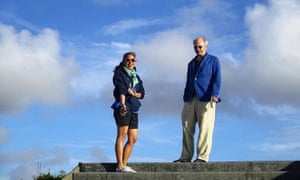
I’m an architect and my wife and I were looking at a site to build a property by the sea near Rye. Just the site alone was something like £600,000. It was a clear day and we could see France – that sort of piqued our interest. I do a lot of urban design, using maps to analyse how close things are in time, rather than distance. If you put a pin in King’s Cross – where my wife Bernice and I both work – in one of these interactive maps, most of northern France is closer in time than most of south-east England: Eurostar stretches northern France into what would, timewise, be considered a suburb of London. It’s 55 minutes to Calais-Fréthun. So we came over for the weekend, looked at eight properties and chose the fourth – in the old town of Boulogne, between the cathedral and the castle.
We both run our own businesses and commute every day or weekly, as we see fit. Obviously it’s expensive; if I did it every day it would be double or triple what I would pay for a Brighton season ticket – but you would need several lifetimes of that before you got near the cost of property differential. I used to come up from Brighton and sit in someone’s armpit – if the train worked at all. In general I would say the prices in northern France are 10% of south-east England’s: not 10% off, 10% of. The house next door to ours, once occupied by the writer Alain-René Lesage, who wrote Gil Blas, just sold for 40,000 euros.Advertisement
We spend our weekends walking on the beautiful beaches, cliffs and dunes of the Côte d’Opale national park and eating some of the best seafood in Europe.
Harry Dobbs, Boulogne.
My train broke down for a night
I commute weekly between Brussels and London, and in November 2014 I was on a train that broke down in northern France, en route to Brussels. After a while the power went out; it was around 9pm and we were sitting in darkness. It quickly became apparent we would be stuck for a long time. Everyone made a dash for the bar, which sold out in about 20 minutes. It was cold outside, but when the aircon broke the carriage warmed up. The problem was that the train was on a bend and tilted, which meant we were all leaning to the right (or the left if facing backwards). In the end we spent the whole night on the train, trying to sleep, while leaning to the right.
Finally we were towed away by another train and arrived in Brussels at 6am – nine hours late. The woman next to me listened to nothing but Coldplay (loudly) during the delay. Everyone’s phone batteries started to run out except hers, which went on for ever. It was a very long night.
Paul, who did not want to give his surname.
I had sex on the Eurostar and founded the 45 Metre Underground Club
I was with my girlfriend – it was 2011, we hadn’t been going out long. It was a morning train. I think we did have a drink on the train, but we were very much in control of our senses. I had the idea as we were heading out of St Pancras. She didn’t take much persuasion: it was a sort of pioneering thing. I imagine we weren’t the first to do it, but we were the first to do it in the spirit of this new club we wanted to set up.
The Mile High Club is aspirational: what could be sexier and naughtier than sex on a plane? But now flight shame puts the Mile High Club in a different light. The 45 Metre Underground Club is the low-carbon option. But you have to be doing it when you are under the Channel.
Honestly, I think we were in there for about five or 10 minutes, before emerging gingerly but extremely pleased with ourselves. I would absolutely recommend it. There is a huge body of water above you, you are hurtling along at high speed through a dark tunnel under the Channel, knowing you are on a low-carbon adventure.
Matt Mellen, founder of the Ecohustler online magazine, lives in Frome, Somerset.
My train hit a wild boar
One cold November evening I boarded a 7pm train at St Pancras. The journey proceeded through the tunnel, across the flat French countryside and I was looking forward to checking into my hotel. Suddenly there was a loud bang, followed by an all-consuming scraping noise that seemed to go on for ever. Eventually we ground to a halt.
We saw train staff wandering around outside with torches. After an hour, we finally started up again. There was a very loud grinding noise, then we stopped. After two to three hours of further waiting, we finally had an announcement: “Your Eurostar has hit a wild boar and is badly damaged.” They didn’t tell us what happened to the boar, but I guess that at 180mph it had probably been quite badly damaged too.
Time passed: another two hours; three hours. But the bar was open and the wifi was working. We were stuck, but it was comfortable. Eventually, at about 4am, they commandeered another train and towed our broken Eurostar into a nearby station at about 10mph. We finally made it into Paris shortly after 8am, where they left us with a free breakfast, huge apologies, a full refund and tickets for another free trip.
Chris Allen lives in Suffolk.
I sat next to the England Wags
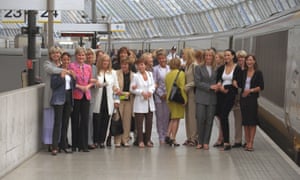
I was returning home to Brussels in 1998. The train got almost to the tunnel, had a problem and had to turn back to London. Eventually we were all bussed to a hotel near Wembley stadium. The following morning I insisted on a place on an early train. I had a first-class ticket and argued I should be able to get back to work asap. Eventually I was given a ticket rather grudgingly and collected a free copy of the Daily Telegraph at Waterloo. Before boarding I read an illustrated article about the England football team’s wives. This was before the term “Wags” was in use, but it was the World Cup and that evening England were playing Argentina. When I found my carriage a man tried to stop me boarding, saying the carriage was fully booked, but I insisted on getting on. The carriage had few people in it, all women under 35, very well dressed.
My seat was at a table of four. The three women all knew each other, and another seated across the aisle. I offered to swap places so they could sit together. Gradually it dawned on me this was a carriage reserved for the
wives and girlfriends of the England team. I remember recognising Paul Scholes’s wife from the picture. I think Victoria Beckham was the only one not present. They were very jolly. I thought the last thing they wanted was a male trying to engage in conversation. I would just sit back and tell my mates about it. At Lille they all departed, exiting the carriage in a wave of expensive fragrance.
Tom, who did not wish to give his surname. England lost to Argentina on penalties.
I am the French ambassador
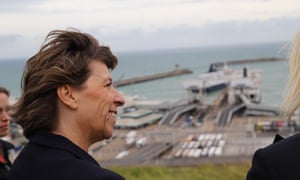
A few days after my arrival in September I went to Dover to see the traffic and the harbour – preparedness, shall we say, on the English side, for various scenarios. I went to Folkestone as well. In the operations centre there is a photograph of Mme Thatcher and President Mitterrand when they signed that agreement in 1986. Seeing it made me think that great vision is needed in politics. There had been talk about it for so long, but they actually decided to do it. And it works. It is the easiest, safest, most ecological way from the UK to France and the continent. I always take the Eurostar. It symbolises that we are so close to each other. When I visited Dover, you could see France from the cliffs. It’s not my job to make predictions, but I can’t say I think much will change. My guess is just as many people will travel from one country to the other, as before. The Channel will not become wider overnight.
Catherine Colonna is France’s ambassador to the UK.
I wore a banana-yellow jacket to serve drunk rugby fans, the wrong Rolling Stone and the right Beatle
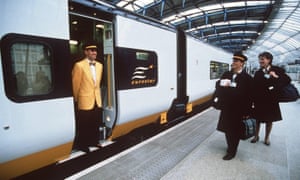
I served on the Eurostar for two summers, 1998 and 99, to pay off my student debts. I went to the interview thinking I could speak fluent French, but completely froze. They still gave me the job.
We had to be on the platform an hour and 15 minutes before departure to get the train ready. We had these banana-yellow blazers, designed by Pierre Balmain, with a yellow and blue clip-on bowtie. It was horrendous. The idea, if you were working in standard class, was to sell as much produce as possible and 1999 was the Rugby World Cup – I’ve never seen so many people drink so much alcohol in my life: when Wales were playing France in Paris, the whole train ran out.
Once, when we were preparing the train to depart at Gare du Nord, the French crew were very excited because Mick Jagger was on the platform. I thought, that is actually an A-list celebrity, worth a look, so I went out. It was actually Charlie Watts, but I didn’t want to disappoint my colleagues by correcting them. In those days, one of the carriages was dedicated to what was called premium class. The only person who regularly travelled premium was Paul McCartney. His daughter was just starting work for Chloé in Paris. He would always refuse the food and fill out a comments card saying the vegetarian options would be better if it used Linda McCartney food.
The job was good fun and very well-paid, for what it was: bilingual coffee serving. I liked chatting in French and it cleared my overdraft. Twice. I kept my banana-yellow blazer for a few years afterwards.
Tom Wolfe is now an English literature teacher in Yangon, Myanmar.
I got my A-level results on the Eurostar
I was going to the south of France on holiday with my boyfriend. For some reason we booked for the day my A-level results were coming out. It was an early train, and as soon as I could ring the school I did. I didn’t want to call in front of everyone, so I went to the little space between the carriages. The teacher was a methodical man who often took quite a long time to say what he wanted. He eventually found my name, then had to check the results. I was getting kind of stressed, because we were going to go into the tunnel soon and I would have to wait another 20 minutes.
I got 4 As: French, Spanish, English and Drama. I was really pleased. I went back to my seat where my boyfriend was waiting with a little bottle of champagne. I remember the rest of the holiday, but not as vividly as that moment.
Jennie Burke lives in Paris with her French husband Julien and four-year-old daughter Octavie.

